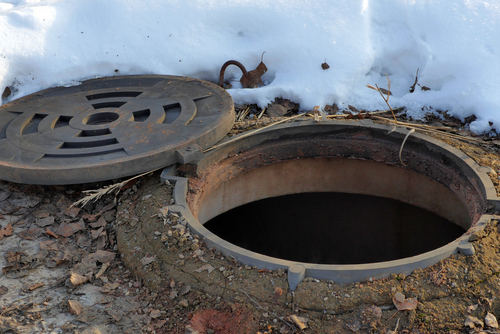The Importance of Proper Well Abandonment Procedures
March 15, 2024 5:50 pm Leave your thoughts
When a well is no longer in use or has reached the end of its productive life, it must be properly abandoned to prevent any potential environmental and safety hazards. Well abandonment procedures are crucial to ensure that abandoned wells do not pose a risk to groundwater contamination, soil degradation, or the health and safety of nearby communities. In this blog, we will discuss the importance of proper well abandonment procedures and why it is essential to follow industry best practices when decommissioning wells.
Protecting Groundwater Quality
One of the primary reasons why proper well abandonment procedures are essential is to protect groundwater quality. Abandoned wells that are not properly sealed can act as conduits for surface water, contaminants, or pollutants to enter the aquifer, which can lead to groundwater contamination. This contamination can pose a significant risk to public health and the environment, as groundwater is a vital source of drinking water for millions of people worldwide.
By following industry best practices for well abandonment, such as sealing the well with an impermeable material and conducting a thorough site assessment to identify any potential contamination risks, you can help prevent groundwater contamination and safeguard this valuable resource for future generations. Proper well abandonment procedures are a critical part of responsible well management and can help ensure the long-term sustainability of groundwater resources.
Preventing Soil Degradation
In addition to protecting groundwater quality, proper well abandonment procedures are also essential for preventing soil degradation. Abandoned wells that are not adequately sealed can allow contaminants to leach into the surrounding soil, leading to soil degradation and potential impacts on soil fertility and ecosystem health. Improperly abandoned wells can also create safety hazards, such as sinkholes or subsidence, which can pose risks to property and public safety.
By following proper well abandonment procedures, you can minimize the risk of soil degradation and protect the integrity of the land surrounding the well site. Sealing the well with an impermeable material, removing any equipment or infrastructure from the site, and restoring the land to its natural state are all critical steps in the well abandonment process that can help prevent soil degradation and ensure the long-term health of the ecosystem.
Ensuring Regulatory Compliance
Proper well abandonment procedures are not only essential for protecting the environment and public health but also for ensuring regulatory compliance. Most jurisdictions have specific regulations governing the abandonment of wells, including requirements for sealing procedures, site assessments, and reporting obligations. Failure to comply with these regulations can result in fines, penalties, and legal consequences for the responsible party.
By following industry best practices and adhering to regulatory requirements for well abandonment, you can avoid potential liabilities and demonstrate your commitment to responsible well management. Working with a qualified well abandonment contractor who is familiar with local regulations and best practices can help ensure that the abandonment process is carried out correctly and in accordance with applicable laws and standards. Proper documentation and reporting of the abandonment process are also essential to demonstrate compliance and protect against any potential legal challenges in the future.
Protecting Public Safety
Another critical aspect of proper well abandonment procedures is protecting public safety. Abandoned wells that are not properly sealed can pose serious safety hazards, especially to children, animals, or unsuspecting individuals who may inadvertently fall into the well shaft. These accidents can result in injuries or fatalities and can have devastating consequences for affected communities.
By ensuring that abandoned wells are properly sealed and secured in accordance with industry best practices, you can help prevent accidents and protect public safety. Well abandonment procedures should include measures to prevent unauthorized access to the site, such as fencing or signage, as well as proper sealing of the well to eliminate any potential hazards. By taking these precautions, you can help ensure that abandoned wells do not pose a risk to the safety and well-being of those in the surrounding area.
Summary
Proper well abandonment procedures are essential for protecting groundwater quality, preventing soil degradation, ensuring regulatory compliance, and safeguarding public safety. When a well is no longer in use, it is crucial to follow industry best practices for decommissioning wells to minimize environmental and safety risks and protect against potential liabilities. By working with a qualified well abandonment contractor and adhering to regulatory requirements, you can ensure that the abandonment process is carried out correctly and responsibly. Proper well abandonment procedures are a critical part of responsible well management and can help safeguard valuable resources for future generations.
Need a Water Well Company in Monroe, NC?
Welcome to Love Well & Pump Supply, LLC! Love Well & Pump Supply, LLC has been supplying well services since 1967 to Union. We specialize in water well inspections, abandoned wells, waterline piping, installations of pumps and tanks, camera inspections, trench digging, and freshwater services. We work closely with irrigations in residential, farms, agricultural, nurseries, greenhouses, and light commercial. Love Well & Pump Supply, LLC works with all major brands of pumps and systems, ensuring no job too large for us to handle. We offer free estimates and free water testing, so give us a call today!
Categorised in: Well Abandonment
This post was written by admin
